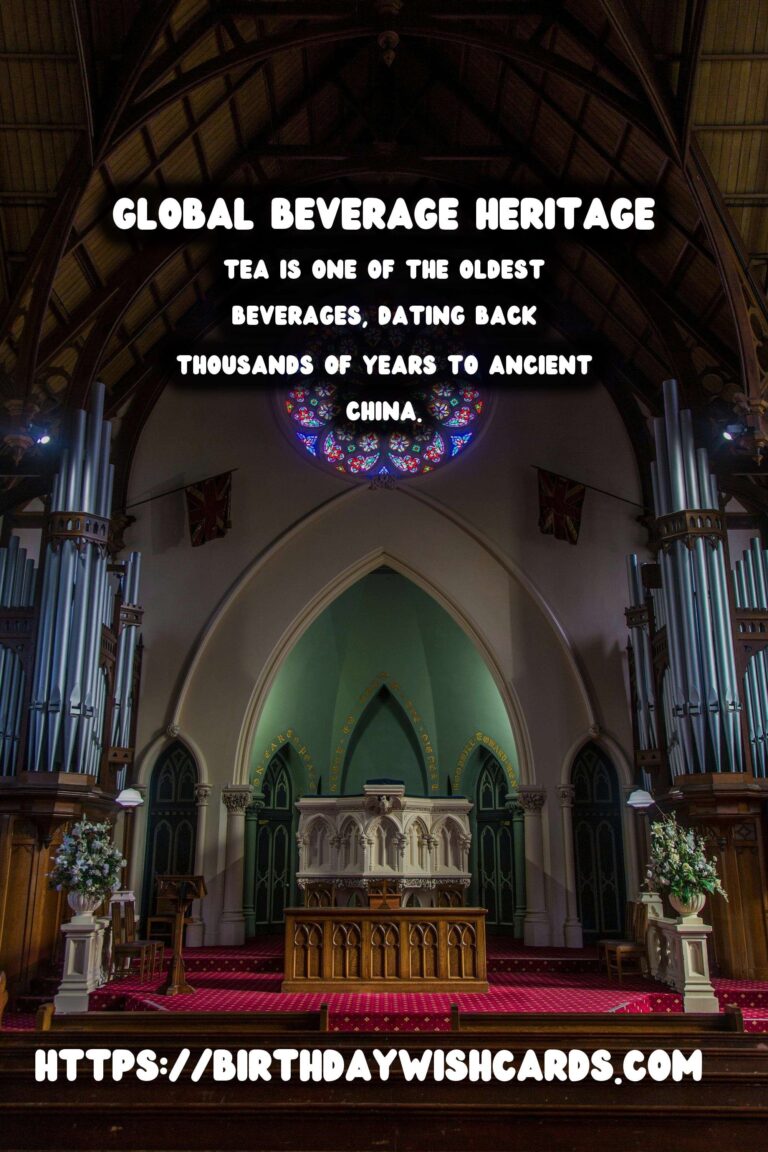
Culinary anthropology delves into the intricate relationship between culture and food, unraveling how history shapes our diets. One of the fascinating aspects of this field is the history of global beverages. From teas, coffees, to wine and spirits, every drink has its unique story that is often deeply intertwined with culture, trade, and social interaction.
The Origins of Tea
Tea is one of the oldest beverages, dating back thousands of years to ancient China. Legend has it that Emperor Shen Nong discovered tea accidentally when leaves from a wild tree blew into his pot of boiling water. With time, tea became a staple, not just within China, but across the world. The Chinese tea culture influenced the formation of the famous Tea Ceremony in Japan and different varieties have spread globally, each adapted by various cultures to suit local tastes.
Coffee: Birth from the Highlands
Coffee finds its roots in the Ethiopian highlands, where it said a goat herder noticed his goats displaying energetic behavior after eating berries from a certain tree. The knowledge of coffee eventually spread to the Arabian Peninsula where it became known as ‘qahwa’, and the first coffee houses became centers for social interaction, political discourse, and cultural exchange.
Cocoa: The Divine Drink
Central and South America gifted the world with cocoa, where ancient civilizations like the Aztecs and Mayans revered it as a divine drink. These cultures enjoyed cocoa as a frothy, bitter beverage called ‘xocolatl’, which was reserved for royalty and ceremonies. It wasn’t until Spanish explorers brought cocoa back to Europe that it was sweetened and became the beloved hot chocolate we know today.
The Age of Alcohol
Alcoholic beverages have an equally rich tapestry within human history. They played a vital role in the development of agriculture and the spread of civilization. Beer is notably one of the oldest alcoholic beverages, with evidence pointing towards its consumption in ancient Mesopotamia. Meanwhile, wine, originating in the regions of Georgia and Armenia, soon became a significant cultural symbol in ancient Greece and Rome.
The Globalization of Beverages
As trade routes developed, beverages traveled far from their places of origin, fostering cultural exchanges and economic collaboration. The British East India Company propelled the spread of tea, while the Dutch and French were instrumental in popularizing coffee and cocoa worldwide. The exchange of these beverages shaped global trade and colonial histories, including the infamous ‘Boston Tea Party’ which marked a critical point in American history.
Cultural Significance
Beverages are more than just sustenance; they are potent cultural symbols. A simple cup of chai tells a story of spices traded across continents, while a glass of wine reflects a history of vineyards nurtured over generations. Beverages are woven into the social fabric, marking celebrations and ceremonies across cultures.
Whether it’s celebrating with champagne, relaxing with a cup of coffee, or enjoying a sip of traditional sake, beverages today continue to connect people through shared experiences, reinforcing cultural identities in an ever-evolving global village.
The Future of Beverages
With globalization breaking barriers and technological innovation changing how beverages are produced and consumed, the future offers exciting possibilities. From sustainable sourcing to the growing interest in non-alcoholic options, the beverage industry is poised for transformation.
As we reflect on the history of beverages through the lens of culinary anthropology, we recognize not only their historical significance but also their potential to influence and define future cultural trends.
Culinary anthropology delves into the intricate relationship between culture and food, unraveling how history shapes our diets. Tea is one of the oldest beverages, dating back thousands of years to ancient China. 
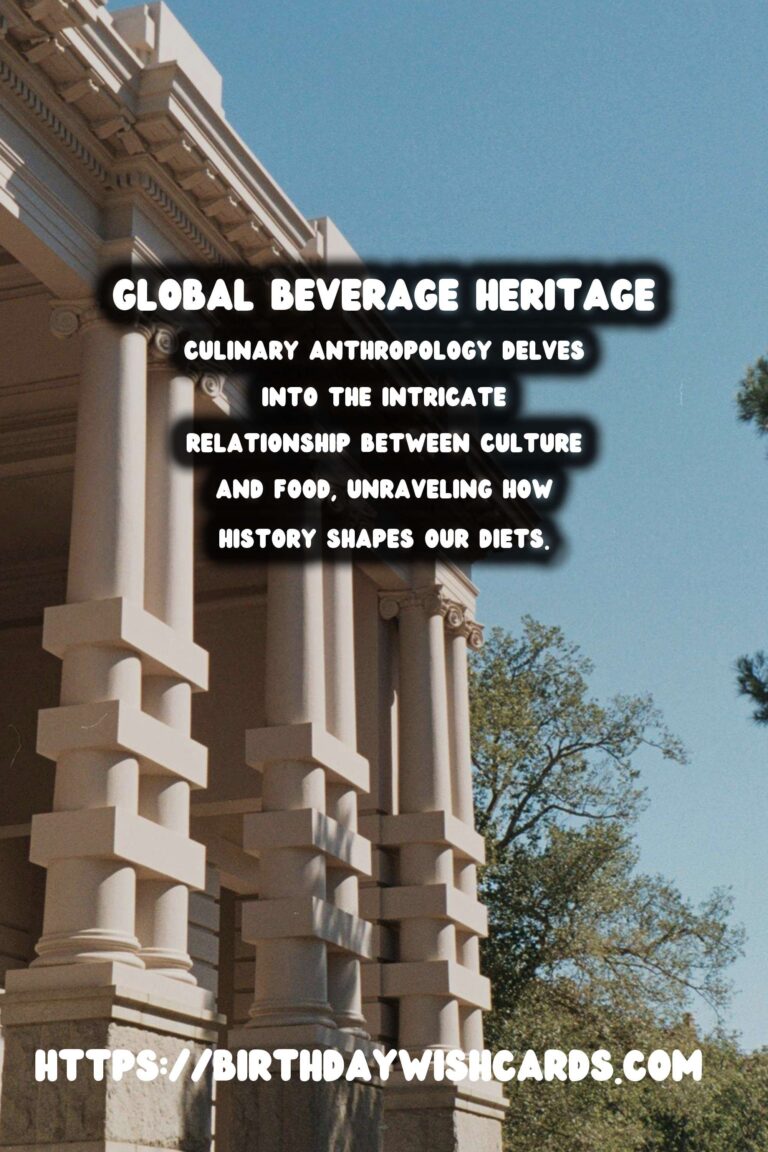
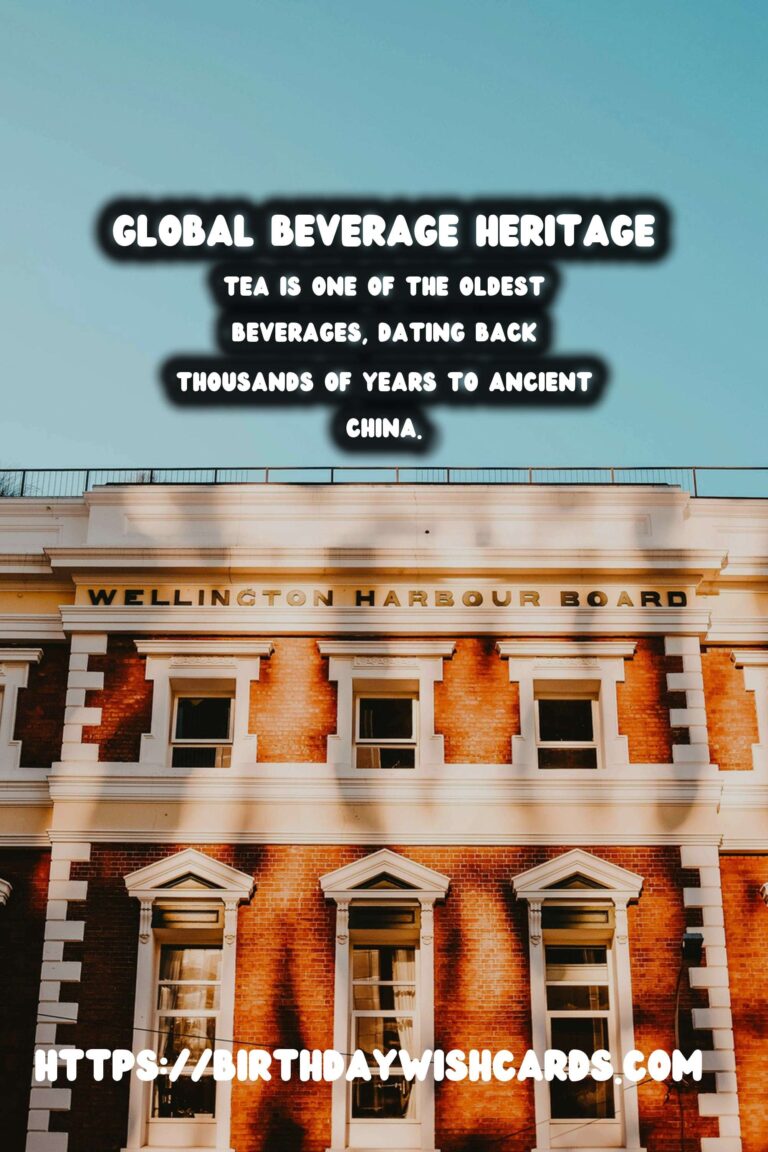
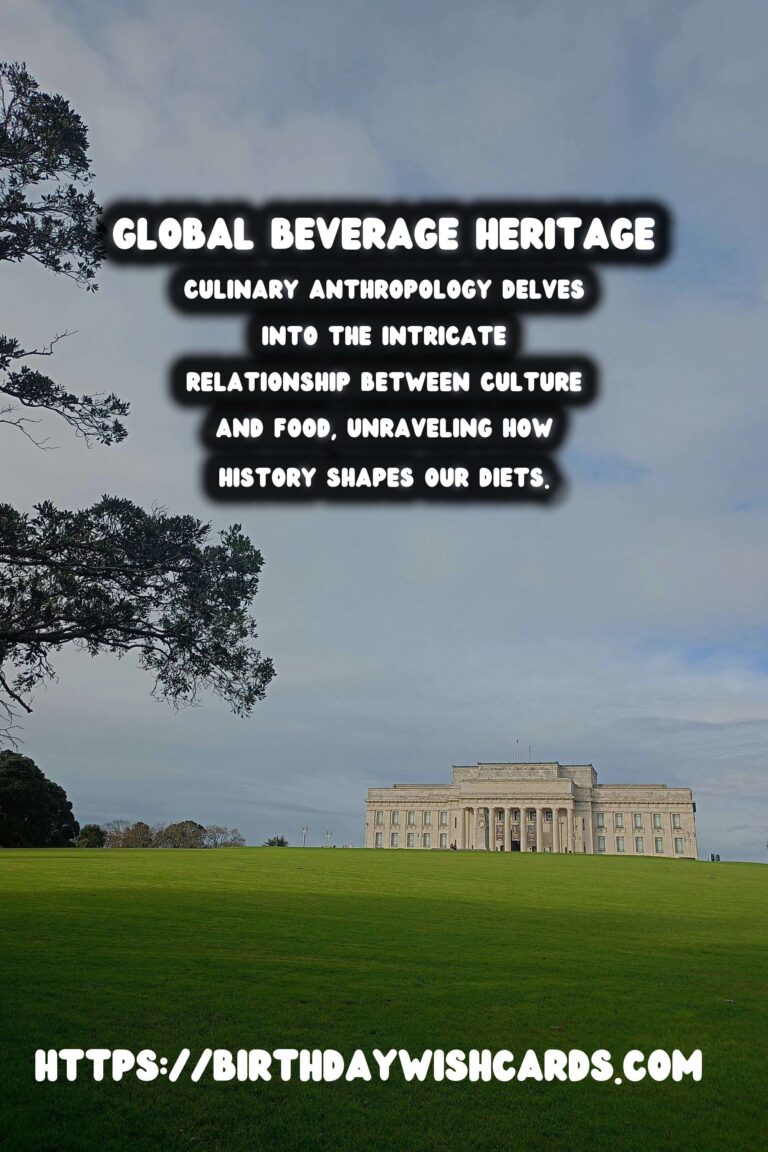
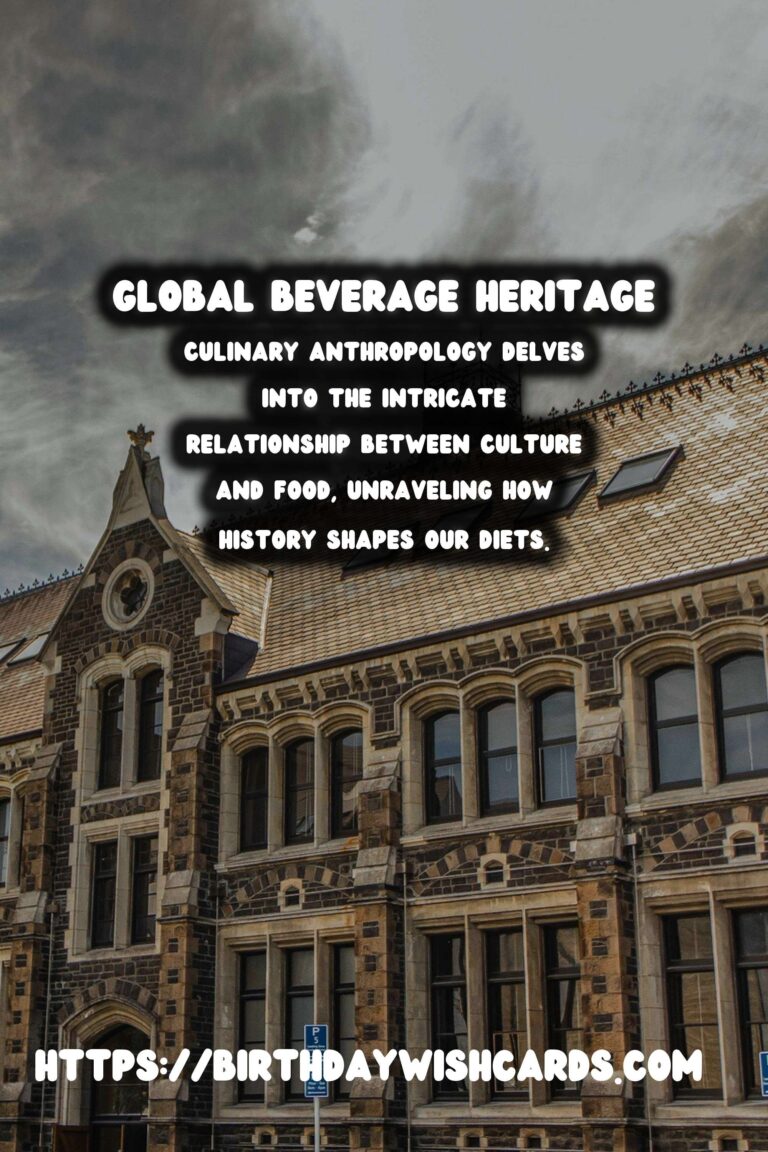

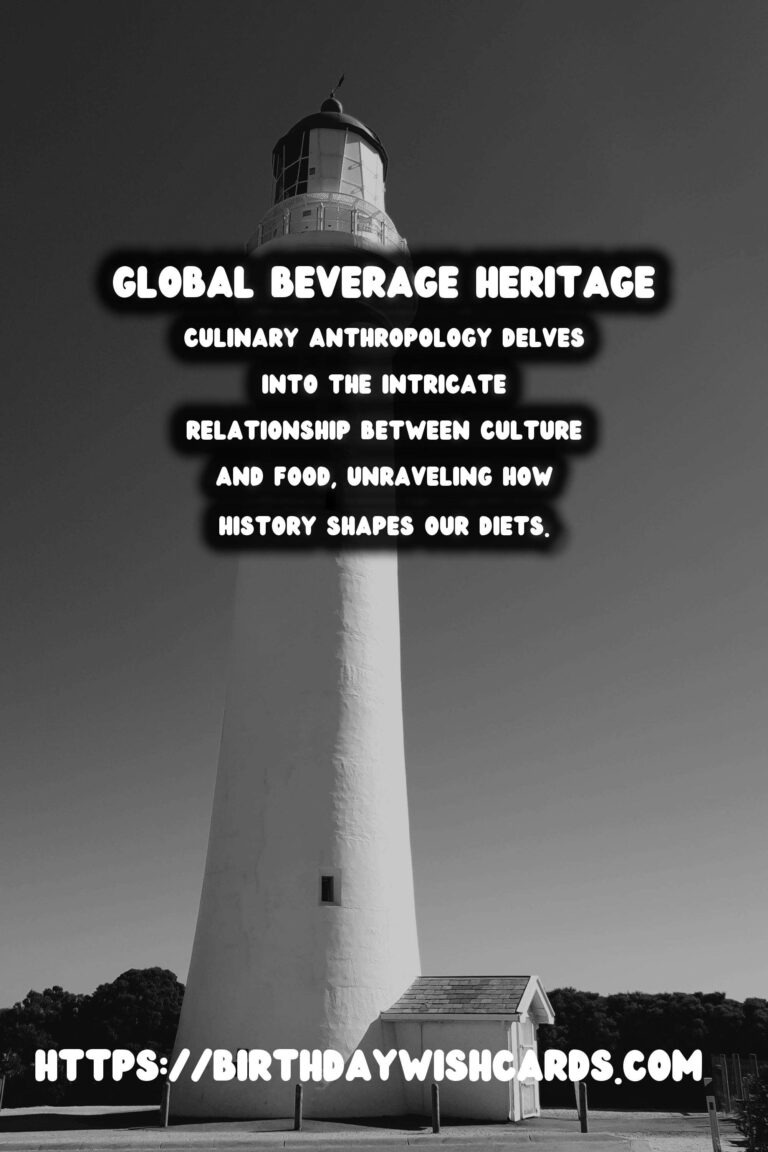
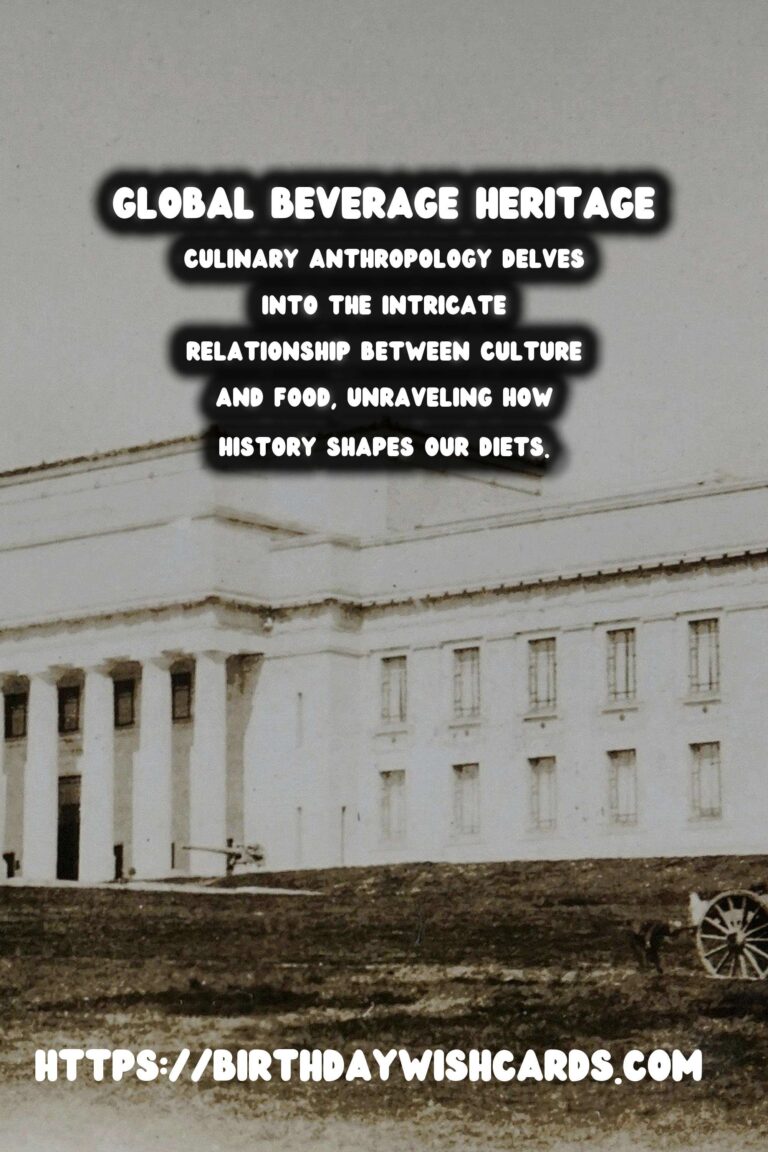
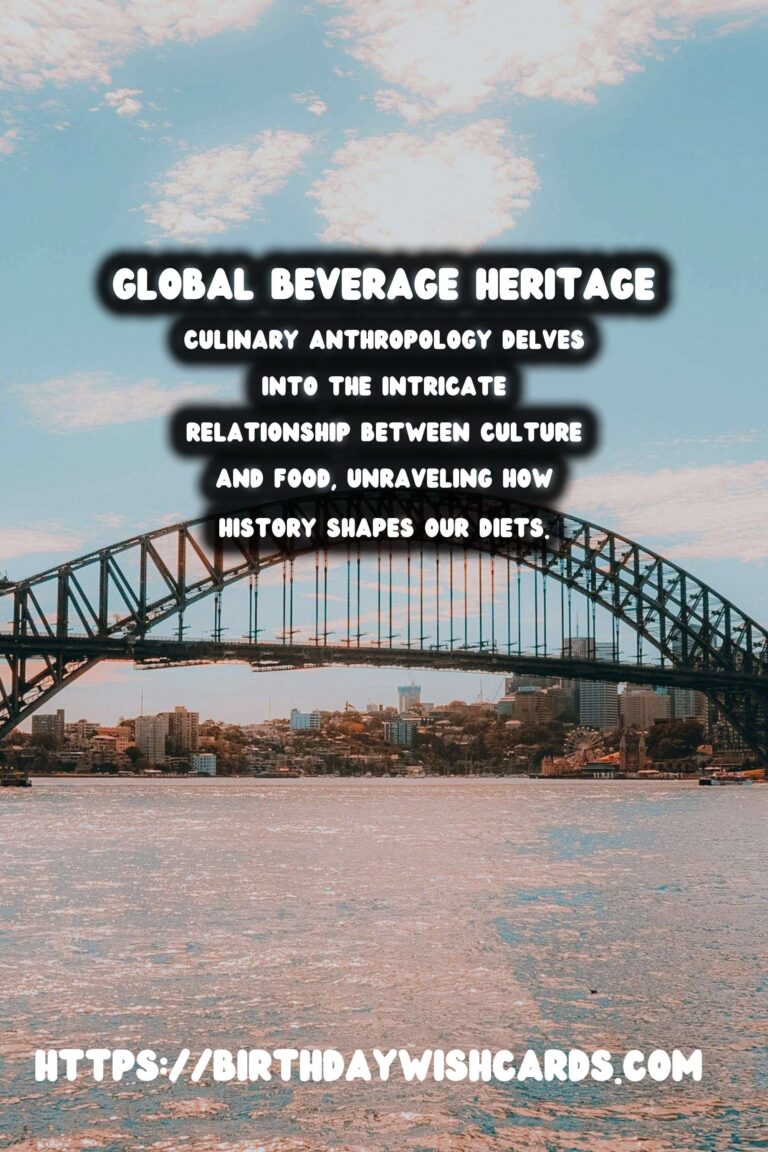
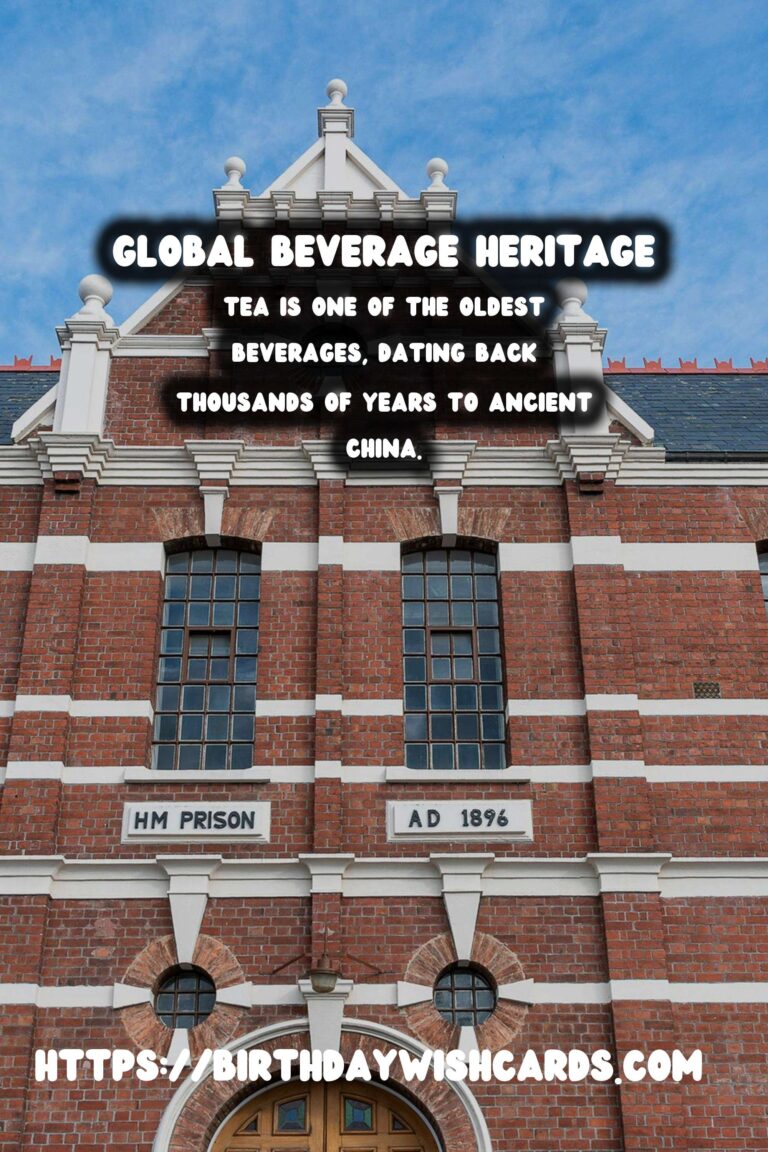
#CulinaryAnthropology #GlobalBeverages




